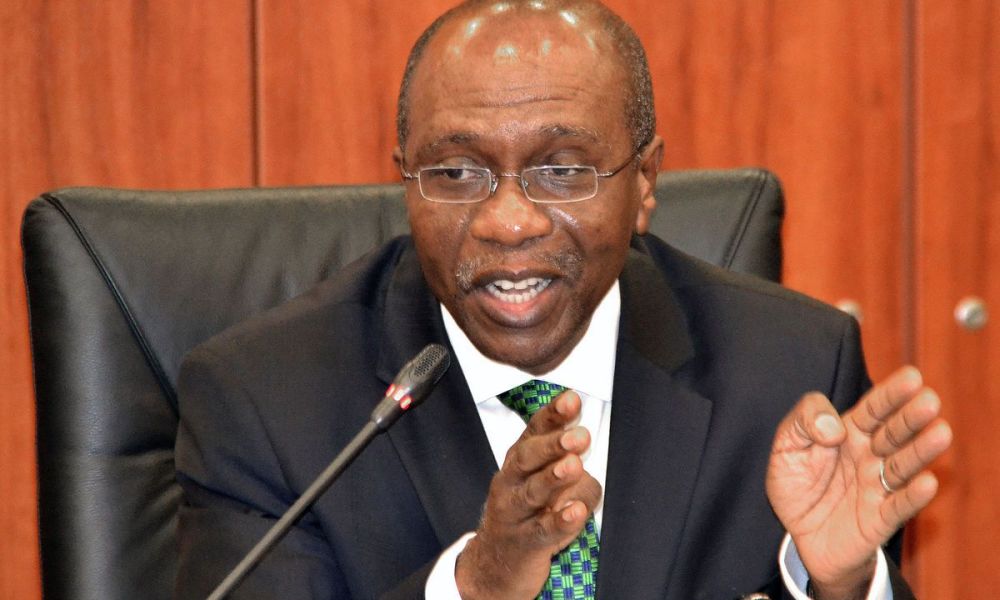Members of the Central Bank of Nigeria (CBN) Monetary Policy Committee (MPC) rose from their meeting on Thursday, voting unanimously to cut its benchmark Monetary Policy Rate (MPR) by 100 basis points to 12.5% while holding all other policy parameters constant.
Increasing the MPR at this stage, the committee argued, will “be counter-intuitive and will result in upward pressure on retail market rates, maintaining that although a sharp decline in output growth is expected in Q2 2020 and may be the third quarter.”
Specifically, seven members voted for a reduction of the policy rate by 100 basis points, two opted for 150 basis points, while a voice thought a 200 basis points vote will just be fine. They however retained the Asymmetric Corridor of +200/-500 basis points around the MPR; the CRR at 27.5%; and the Liquidity Ratio at 30%.
In a communiqué signed by Godwin Emefiele, the committee’s chairman and CBN Governor, members expressed optimism that the Nigerian economy may yet escape sliding into the much touted recession after all.
Recall that the World Bank projected early April that Nigeria’s economy could tumble by as much as 3.4% this year in the aftermath of the Coronavirus pandemic.
But the MPC members agree that going by the implementation of its various stimulus initiatives, according to the communiqué, the Nigerian “economy would reverse to positive growth by the fourth quarter.
“The committee expects that on the backdrop of the various stimulus packages and increased credit at lower interest rates, the impact of the COVID-19 pandemic would be relatively less severe than had earlier been expected and the reversal in growth deceleration would become more optimistic.”
Members stressed that “if all stimulus packages already announced by the Bank such as concessionary rates, loan restructuring, and targeted loans to agriculture, manufacturing and health sector are well utilized, this will produce the desired impetus needed to boost economic recovery in Nigeria.”
They noted the imperative to strike a balance between supporting the recovery of output growth, while maintaining “stable price development across inflation, the exchange rate and market interest rates.
Members recalled that the Cash Reserve Requirement (CRR) was recently adjusted upwards as a means of tightening the stance of policy, adding that as part of its response to the COVID-19 pandemic the CBN had cut interest rates associated with all its interventions from 9 to 5%. The last of this was the interest rates of its facilities through Microfinance banks and primary mortgage institutions.
According to a breakdown of disbursement of funds under the various CBN intervention initiatives that informed the optimism, the communiqué noted for example, “that under the N100bn Healthcare Sector Intervention Fund, the CBN has approved and disbursed N10.15bn for some projects for the establishment of advanced diagnostic and health centres and the expansion of some pharmaceutical plants for essential drugs and intravenous fluids.
“As part of the N1tr intervention targeted at Agriculture and Manufacturing firms, the bank has further disbursed N93.2bn under the Real Sector Support Fund to boost local manufacturing and production across critical sectors,” involving over 44 greenfield and brownfield projects.
Furthermore, the CBN said it has also approved N10.9bn to 14,331 beneficiaries under the N50bn Targeted Credit Facility for households and SME’s, out of which N4.1bn has been disbursed to 5,868 successful beneficiaries.
The committee, therefore, directed the CBN “management to reach out to the banks to encourage them to offer and disburse these funds to those priority sectors of the economy so as to stimulate aggregate demand and create more jobs.
“The MPC appraised the Federal Government’s resolve to maintain the core of its spending plans for 2020 as this remained vital for the attainment of the much-needed economic recovery.”
It also applauded government’s efforts at revising the oil price benchmark downwards to reflect prevailing conditions, reiterating the urgent need for the government to improve tax collections, through a gradual, but purposeful diversification of the economy’s revenue base.
Members also urged government to remain focused on the implementation of the revised 2020 – 2022 Medium Term Expenditure Framework (MTEF) as the basis for sustainable fiscal policy.
The MPC emphasized the need for Government to work towards a gradual reopening of the economy in line with recommendations of the Presidential Task Force (PTF) and advice from medical experts, drawing attention to the need to directed efforts at saving not just lives but also livelihoods.
This, they stressed, will enable the resumption of economic activities necessary to stimulate growth, accelerate recovery pace and restore livelihoods, particularly the vulnerable members of the society, expressing concerns over the heightened inflationary pressure attributed to a combination of monetary and structural factors.
“While price stability remains the Bank’s primary mandate, the committee expressed the need for a balanced approach in supporting growth in the face of rising domestic prices.”
With respect to output, the Committee urged the Federal Government to continue exploring options of partnership with the private sector to fund investment in infrastructure, so as to aid job creation, support production and boost output growth.
The committee equally reiterated the need to attract both direct foreign and domestic investments necessary to support growth in key economic sectors, lie Nigerian auto manufacturing, aviation and rail industries.








